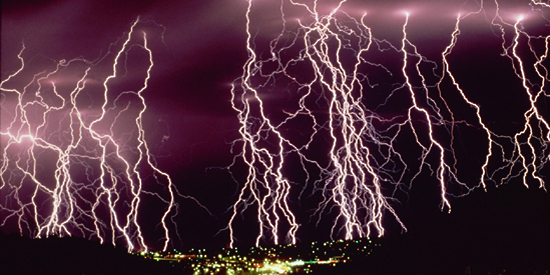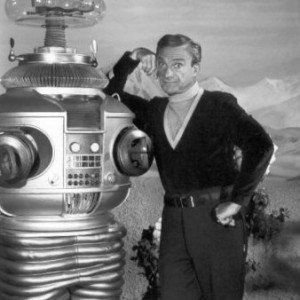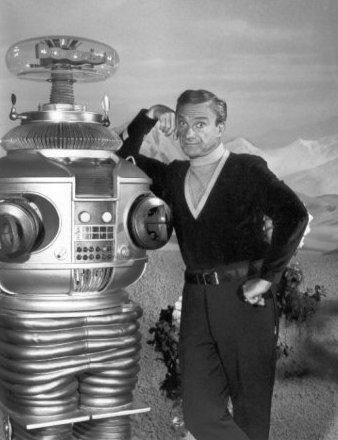 aNewDomain — Welcome back to the Logic Lab. It’s nice to have you back! This time we’re talking more about informal fallacies, and specifically the type of faulty reasoning called “argument to consequences.” It won’t be new to you. You already know it. And probably you even love it — a little. The example I hear most often is that I need to join someone’s religion, because otherwise I will find myself in a roasty and unpleasant place.
aNewDomain — Welcome back to the Logic Lab. It’s nice to have you back! This time we’re talking more about informal fallacies, and specifically the type of faulty reasoning called “argument to consequences.” It won’t be new to you. You already know it. And probably you even love it — a little. The example I hear most often is that I need to join someone’s religion, because otherwise I will find myself in a roasty and unpleasant place.
Yet I don’t believe in your hell, so I don’t really see how the consequences you propose are proof of your theology.
 Another modern example of this argument you hear all the time is on climate change. It would cost money and jobs to fix, so therefore you shouldn’t believe it’s happening. People don’t think logically, which is why the Obama administration has had to spend undue time addressing this one. But climate change is happening no matter how much it would cost us to address.
Another modern example of this argument you hear all the time is on climate change. It would cost money and jobs to fix, so therefore you shouldn’t believe it’s happening. People don’t think logically, which is why the Obama administration has had to spend undue time addressing this one. But climate change is happening no matter how much it would cost us to address.
In the end, the higher cost will be in not addressing it: our lives. That’s the price we pay for that informal fallacy.
The climate will not only continue to warm, but will result in increasingly sever weather events. We’re starting to see these localized extreme events. Just here in Colorado Springs we’re coming off the wettest May on record, by a long shot. And a few nights ago we had a lightning storm the likes of which we’ve never seen here — 107 lightning strikes in an hour. Amazing and terrifying.
 These kinds of events are going to become pretty mundane.
These kinds of events are going to become pretty mundane.
This is not an argument to fear only because there’s no “if” here. It’s going to happen now no matter what we do — there have been too many tipping points crossed to stop it.
Argument to consequences? I don’t like the idea that you might be right, therefore you are wrong. Or: If there is no God, then everything is permitted; therefore there is God.
I’m a psychologist, so I can’t leave that there.
And then there’s white fragility …
I see a lot of articles out there right now about white fragility. This refers to white inability to cope with the idea that racism is real and that it affects our friends profoundly and on a daily basis.
Because we can’t handle the uncomfortable truths here, we deny that they are truths.
The truth is: If racism were real, if it were profoundly real and at the level our friends of color suggest, then white folks would all have a lot of privilege. But, no. We want to think we got where we are by our talents and work ethic, not by going to the head of the line or — worse — standing on the backs of slaves.
If racism were real, that would mean we hated or feared otherness, which would make us cowards.
 If racism were real, that would mean we owed something back. Don’t say reparations!
If racism were real, that would mean we owed something back. Don’t say reparations!
If racism were real, that would mean the police forces that we trust were really, in a partial but completely real fashion, thugs used by the establishment to keep our friends of color in line.
If racism were real, then people of color would be over-represented in the prison system, the system we keep voting for not because of characteristics or moral corruption on their part, but on ours.
And cognitive dissonance prevails.
Here’s a psychological concept: cognitive dissonance.
When we have thoughts that disagree with our basically essential need to believe ourselves moral, clever and pretty, we tend to disregard those thoughts. We edit the movie reel in our head, in other words, so we are a worthy leading character.
Racism is real. We are cowards and deadbeats. We do owe something — probably reparations, but I think most folks on the downside of power would settle for us doing some introspection and working on giving everyone an equal start. And yes, we pay taxes to hire thugs to keep people in line.
In the end, we find ourselves morally questionable if not completely corrupt. Because the facts are all in, and we choose to turn a blind eye rather than face the consequences.
Racism is real. The consequences can’t be avoided by white denial.
Your logic is invalid.
Go on and have a nice day now. For aNewDomain, I’m Jason Dias.
Cover image: Dr. Smith from TV’s “Lost In Space,” CBS Television. (eBay item photo front photo back) [Public domain], via Wikimedia Commons.
Image one: AboveTopSecret.com, All Rights Reserved.
Image two: TheGamesHole, All Rights Reserved.













